Those of us who work on issues surrounding gender and religious fundamentalisms are faced with a problem of representation.
It’s not so much that there isn’t enough coverage of these issues. In fact, the opposite can be true; we often feel bombarded by news coverage of the atrocities committed in the name of religion against women, and against people with non-conforming sexualities and gender identities.
The problem with what we see and hear about gender and fundamentalisms is one of both invisibility and hypervisibility. Certain forms of fundamentalism are hypervisible, while others remain largely unknown. Women and queer people have become hypervisible as victims, while their role as agents of change, and the progressive solutions they offer all too often remain invisible.
The bodies of women and people whose sexualities and gender identities don’t fit the “norm” are disproportionately affected by fundamentalisms. They’re also invariably the first sites of violent policing by states, communities, and families in the name of religion and culture. But despite this (and because of it!) there are countless people confronting fundamentalisms in inventive and truly radical ways. While these people and their work go unnoticed, the mainstream falls back on solutions that only feed the cycle of violence—militarism, criminalization and the closing of civil society spaces.
It is for this reason that AWID has teamed up with illustrator Carol Rosetti to celebrate the individuals challenging fundamentalisms from a feminist perspective. We have given a glimpse into some of the work being done by 12 activists who participated in a recent AWID convening. In displaying these portraits at the AWID Forum 2016 our aim is, in our own small way, to disrupt the mainstream narrative.
Here are just 12 inspirational people, and a glimpse of the work they do, in different situations, and in different ways. But beyond these 12 there are thousands upon thousands of feminists around the world who are at the forefront of resisting religious fundamentalisms. They are not only resisting in the sense of pushing back, but actively creating alternatives—building new worlds made out of equality, justice, and peace.
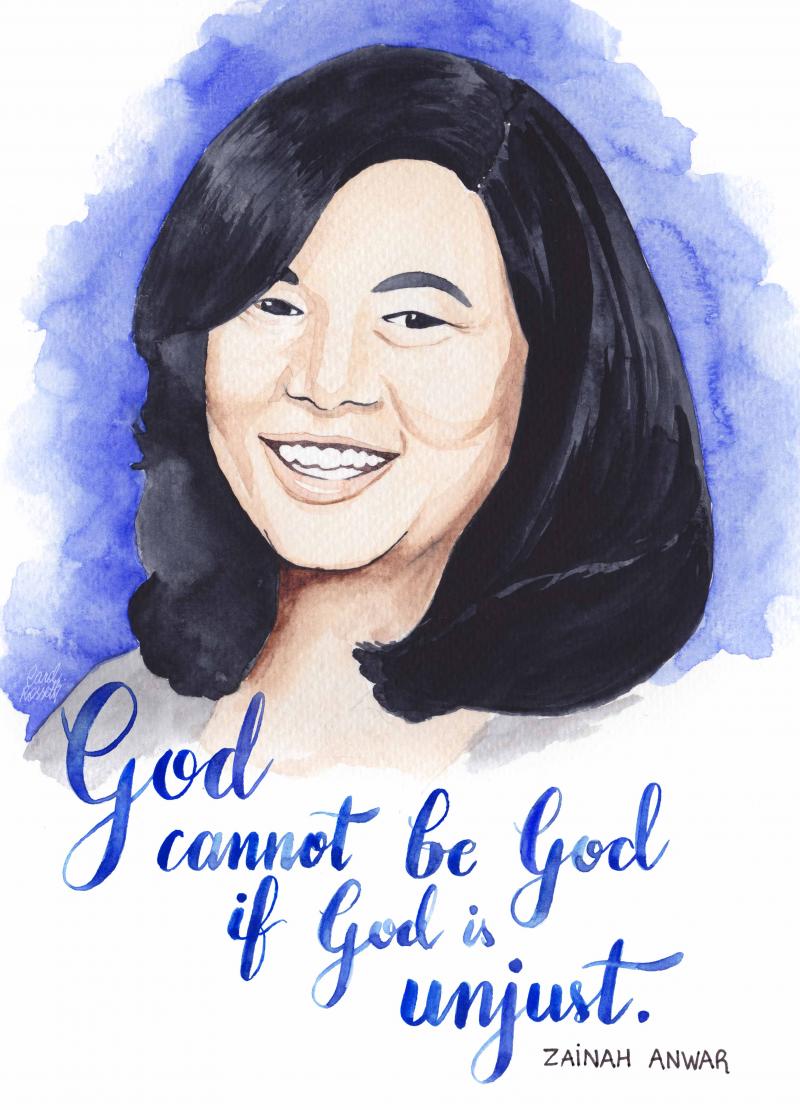
1. Zainah Anwar
Zainah Anwar, the Director of Musawah, believes that to break the hold of conservative forces over the field of religion and public policy feminists living in Muslim contexts must gain the knowledge and courage to offer an alternative vision that reconciles Islam with women’s rights. Musawah’s book Men in Charge? Rethinking Authority in Muslim Legal Tradition is groundbreaking in its dismantling of the “DNA of patriarchy” in the Muslim legal tradition, and their Framework for Action is used by advocates around the world to demand reform towards gender equality.
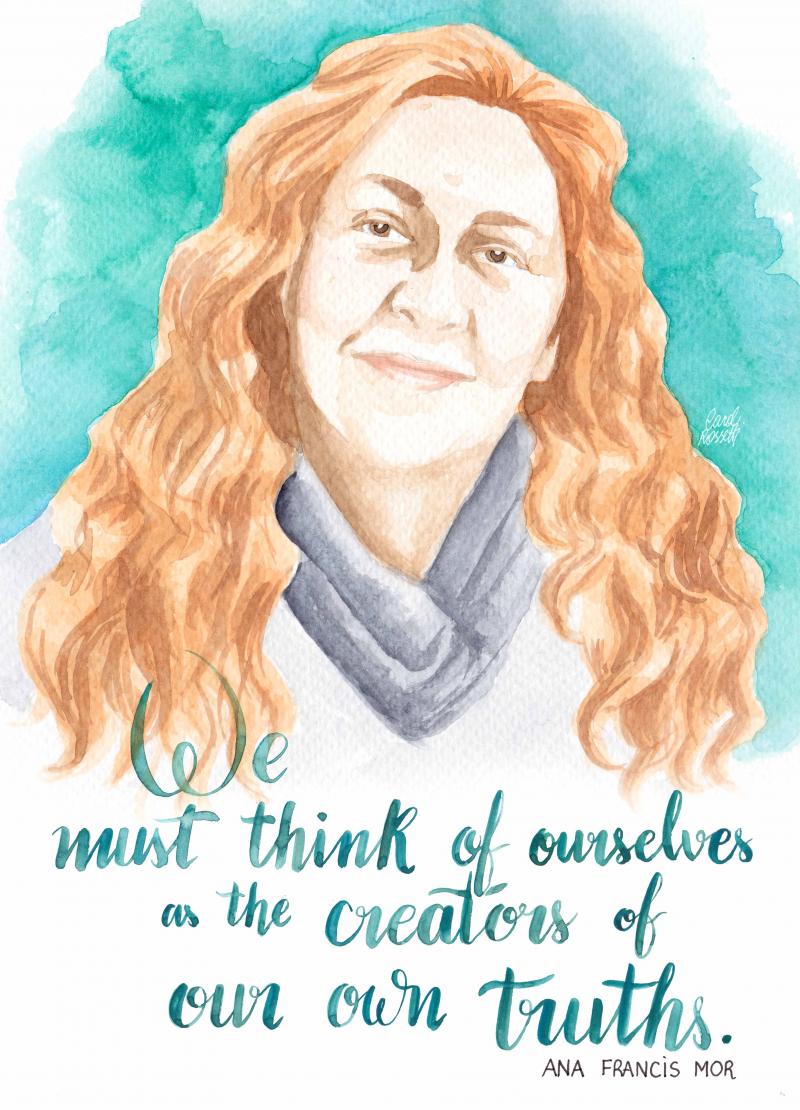
2. Ana Francis Mor
Ana Francis Mor is a Mexican performer and writer whose work with cabaret group Las Reinas Chulas takes discussion of gender and religion out of the academy and direct to people on the streets, in theatres and workshops, and through radio and television—all with a generous dose of tongue-in-cheek humour. One of Ana’s best-known characters is Santa Rita, who describes herself as the patron saint of the LGBT community and a member the VSV Collective—Virgins who have Sex with Virgins! This work, Ana says, is a way of “creating our own truths”, disrupting the monopoly that patriarchal authorities have over spiritual discourse.
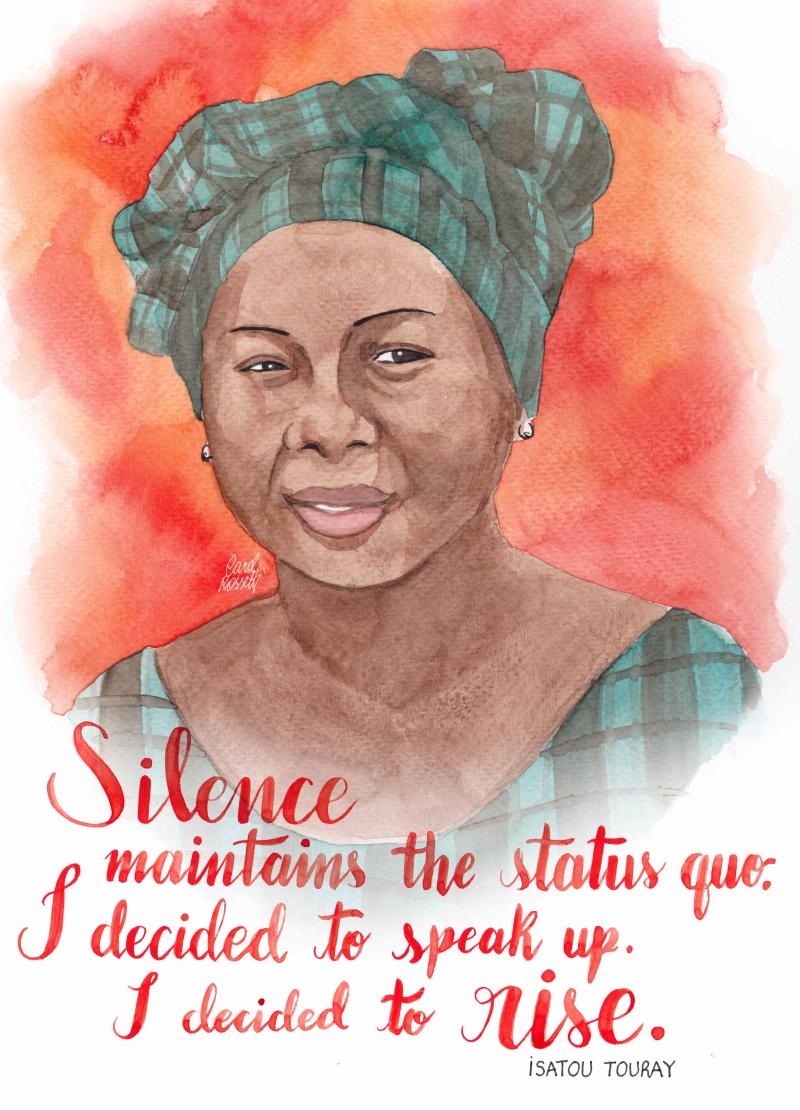
3. Isatou Touray
Isatou Touray has dedicated her life to ending female genital mutilation (FGM) in her home country of Gambia, and to raising awareness globally. Her organization GAMCOTRAP works within communities to reach a consensus to “drop the knife” using a combination of awareness-raising workshops, engagement of local leaders, and programs to provide alternative employment to ex-circumcisers. From 2007-2015 over 1000 communities held dropping of the knife celebrations. Isatou says that the struggle to end FGM has shifted paradigms in Gambia; previously men were seen as the sole repositories of knowledge, but now women are referring to religious texts to justify their claims for rights, breaking religious scholars’ control of information and growing new forms of feminist leadership.
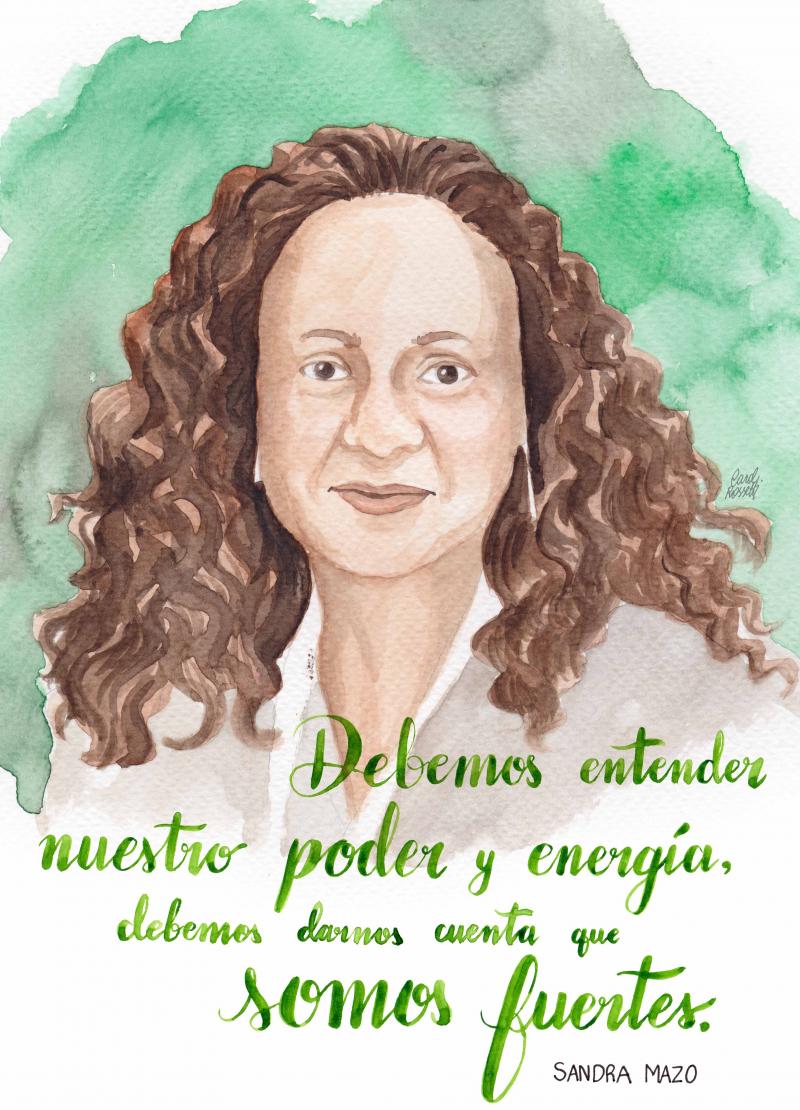
4. Sandra Mazo
“We must understand our power and energy, we must realize that we are are strong.”
Católicas por el Derecho a Decidir - Colombia (Catholics for the Right to Decide - Colombia), the organization Sandra Mazo works with, are leading a campaign for a secular state in Colombia and across Latin America. CDD-Colombia’s campaign articulates the voice of Catholic women who do not feel represented by orthodox Catholic views and do not accept the Church’s imposition of its vision upon state policies. The campaign’s videos have brought about a better understanding of the real meaning of secularism, and the promise it holds of a democratic society in which all people’s rights are guaranteed. When talking about the backlash women’s rights activists face, Sandra sees the positive, saying this is a sign of all the ways feminism is winning. This is reflected in the quote chosen for her portrait.
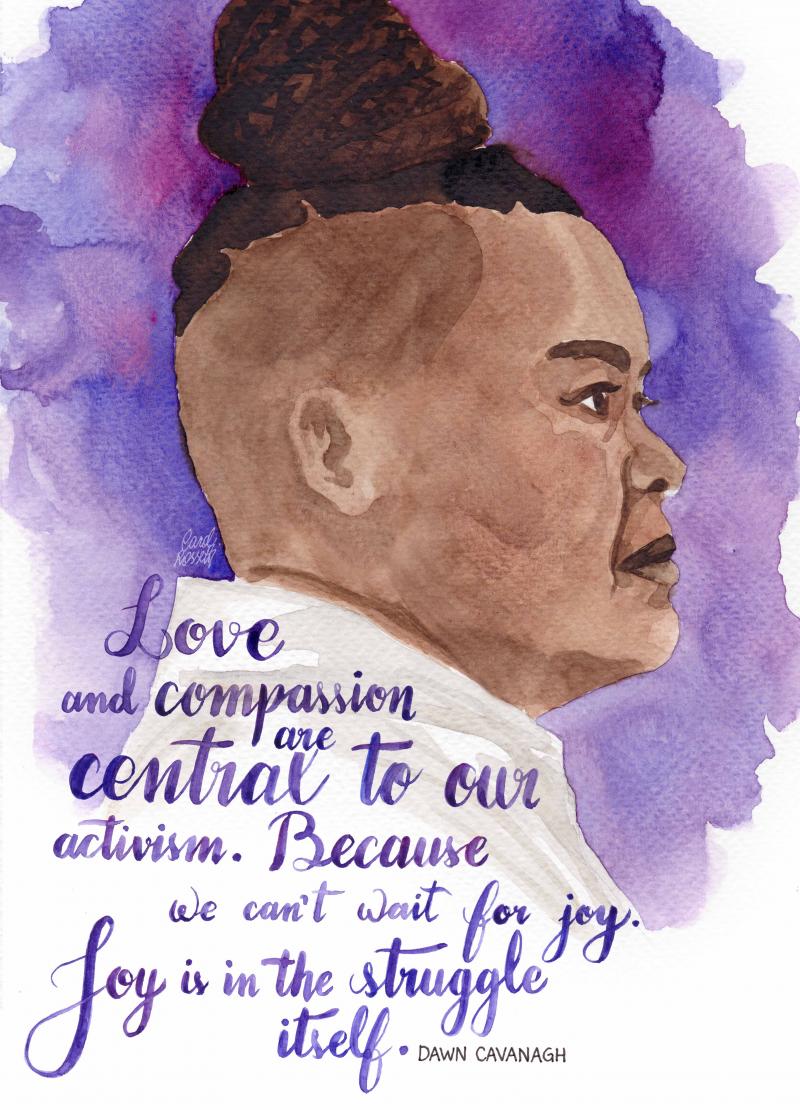
5. Dawn Cavanagh
Dawn Cavanagh and her organization, the Coalition of African Lesbians (CAL), believe in the power of conversation and of ideas. The domain of ideas, they reason, is the mechanism through which fundamentalisms exert control over people’s choices and lives. Based on this rationale, CAL employ a strategy which they call the “think for yourself” approach. Discussion are facilitated about commonly-held ideas, centred on questions like “who does this idea actually belong to?” and “what exactly are your own ideas about this idea?” Through this provocation, people build the critical analysis skills to resist becoming "compliant consumers of the ideas of others". A feminist future according to CAL is: “one where everyone is an agent of their own life and functions as an autonomous being, whilst being part of and negotiating multiple social relations—all in a context of social justice where an injury to one is truly an injury to all.”
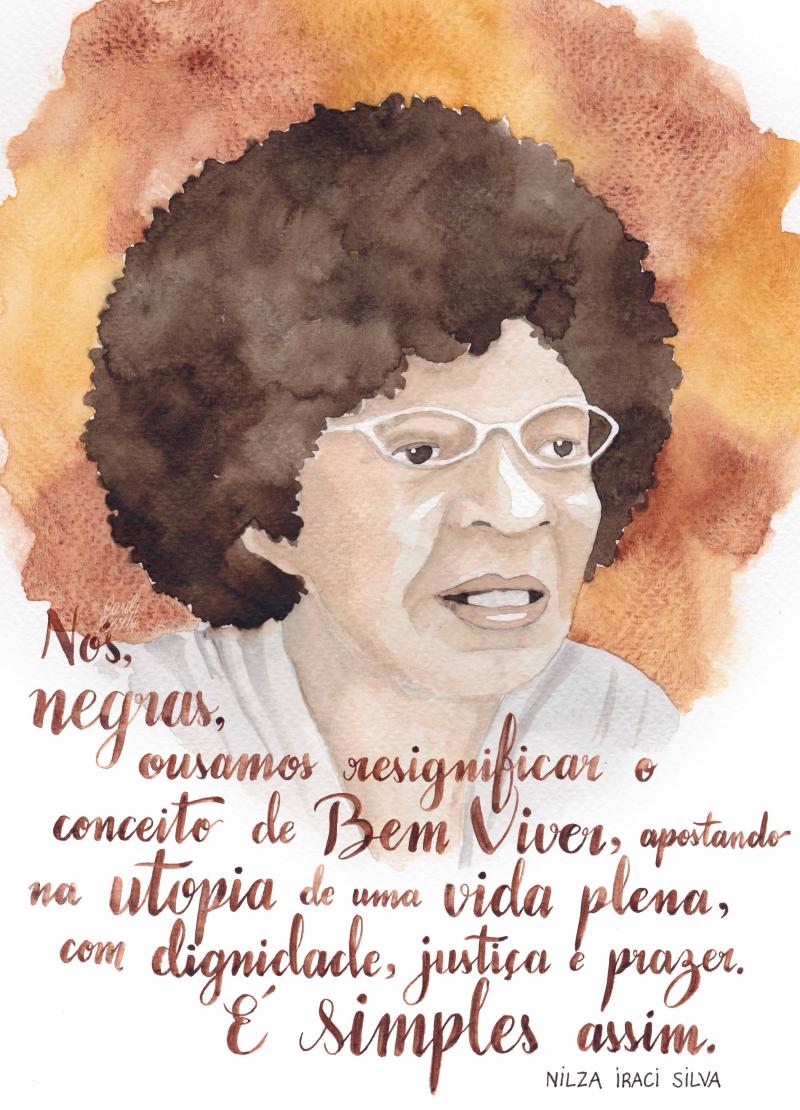
6. Nilza Iraci Silva
“We black women dare to reframe the concept of Living Well, betting on the utopia of a full life with dignity, justice and pleasure. It's that simple.”
Nilza Iraci Silva is the President and Communications Coordinator of Geledés - Black Women's Institute, in Brazil. Geledés is filling vital gaps in Brazil’s social justice landscape, working at the intersections of race and gender. When it comes to questions of religion, this has meant tackling the increasing encroachment of conservative Catholic and Evangelical actors into public life and the disastrous effects this is having on Black women’s lives in particular. It also means calling out the racism of the dominant religious discourses, which exclude and preach hate against Afro-Brazilian religions. Nilza has worked for three decades in Brazil’s feminist and anti-racist struggles and on the process of re-democratization in Brazil.
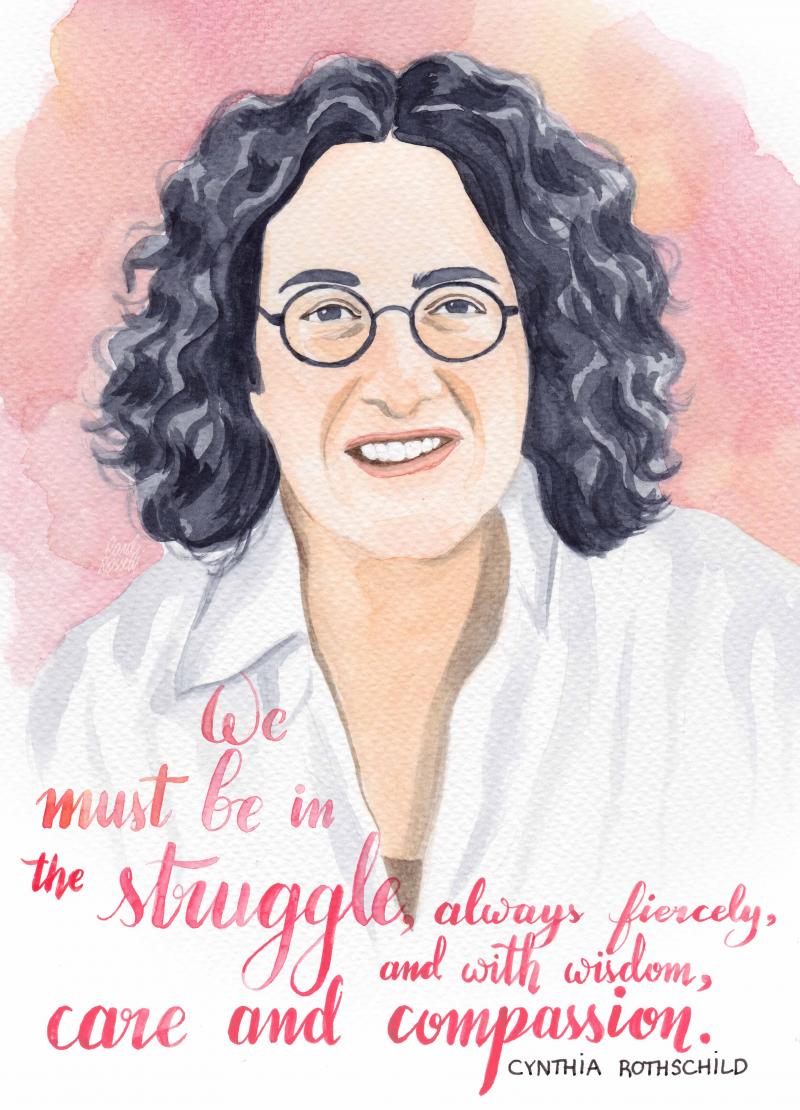
7. Cynthia Rothschild
Cynthia Rothschild has been an activist, author, and trainer for over 25 years. In 2011 and in 2015, she consulted with the United Nations Office of the High Commissioner for Human Rights, where she made contributions to the UN’s two groundbreaking reports on discrimination and violence based on sexual orientation and gender identity. Cynthia believes in strategically using international human rights systems to promote rights agendas. She feels that activists must be inside the human rights system to push its boundaries for what they care about, and that as long as the opposition remains there feminists must also be there. It is imperative, she says, to say “we are watching, we are participating, and we are going to fight for our priorities and communities.”
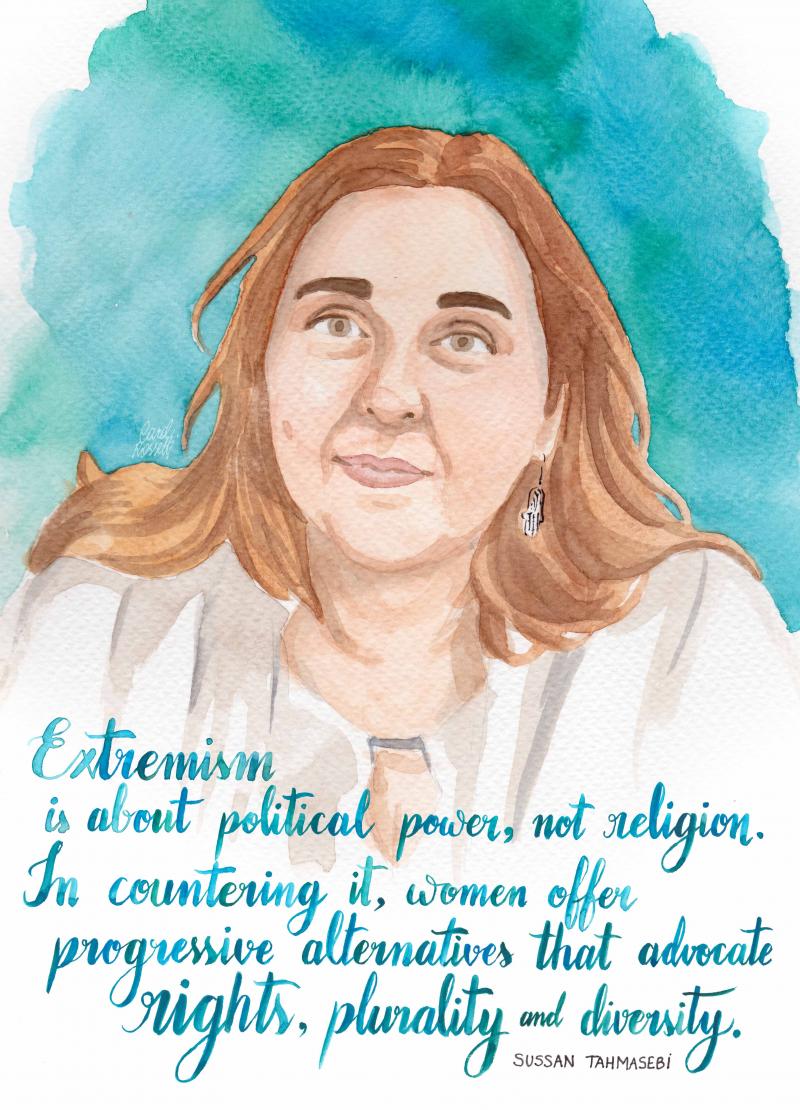
8. Sussan Tahmasebi
Sussan Tahmasebi has been a women’s rights and civil society activist for over two decades. She was a founding member of the One Million Signatures Campaign which engaged face-to-face with Iranians from all walks of life to collect signatures in opposition to Iran’s gender-biased laws. Sussan is the Director of the MENA/Asia region program at ICAN, an organization that supports civil society activism to promote women’s rights, peace, and human security in countries affected by conflict, transition and closed political space. Sussan is passionate about the power of South-South dialogue, creating opportunities for knowledge exchange between activists from various Global South countries. This is one of the principles behind ICAN’s latest initiative WASL (Women’s Alliance for Security Leadership), an independent alliance working to prevent and counter all forms of extremism.
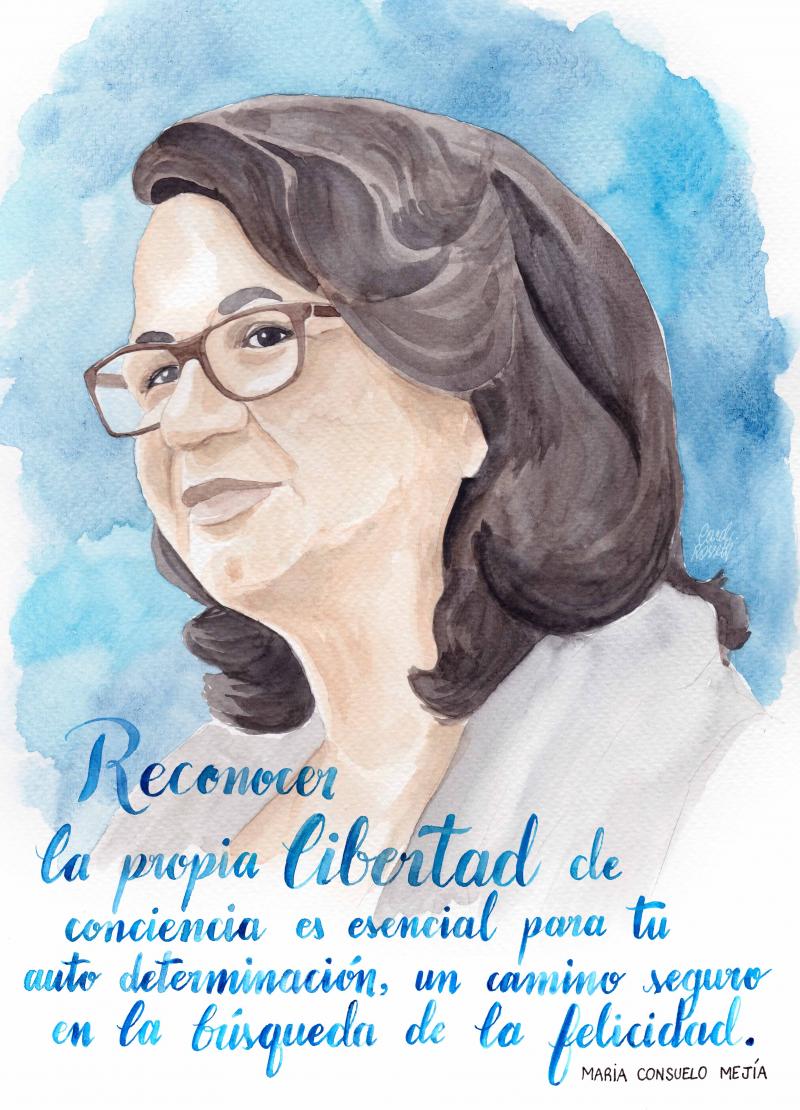
9. María Consuelo Mejía
“Recognizing one's own freedom of conscience is essential to self determination, a safe path in the pursuit of happiness.”
María Consuelo Mejía is the Director of Católicas por el Derecho a Decidir Mexico (CDD-Mexico), an organization that defends the human rights of women and youth from an ethical, Catholic feminist perspective. One of CDD-Mexico’s most effective strategies has been a cartoon series called Catolicadas. Catolicadas features Sister Juana as its protagonist, a nun who sensitizes the clergy and her congregation about LGBT rights and the rights of women, including their sexual and reproductive rights. The series has allowed people to have a different view from that of the institutional church, one which sees sexuality as a source of enjoyment and love, and without renouncing their faith or feeling guilty.
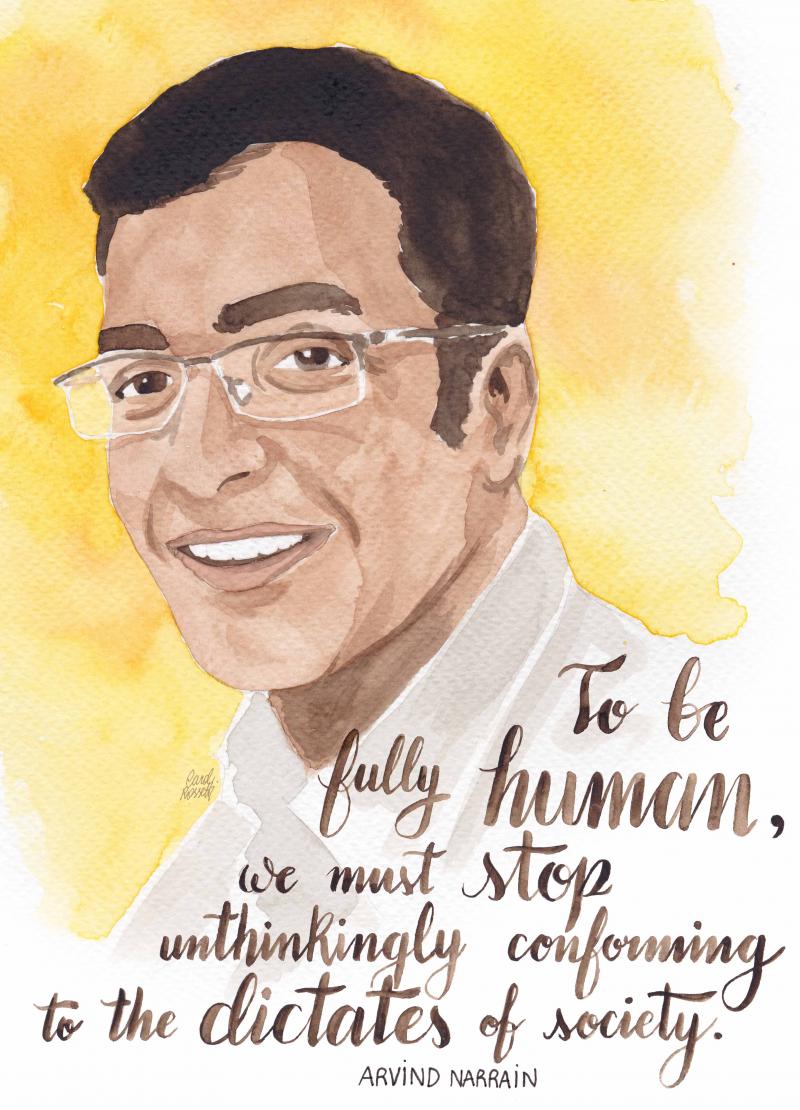
10. Arvind Narrain
As well as being the Geneva Director of ARC International, Arvind Narrain is a founding member of the Alternative Law Forum in Bangalore, India. In 2008 and 2009 there was a wave of vigilante violence in the state of Karnataka; Hindu nationalist groups were attacking young men and women who were of different religious backgrounds, only for associating with one another. The Alternative Law Forum, working with three other groups, mounted a legal challenge to bring justice to the perpetrators. Their work focused on showing that the violence went against the founding principles of the country, as laid out in the Constitution. Arvind describes this approach as acting as an “anchor” against fundamentalism in India, using constitutional values as a common language during a moment of deep polarization.
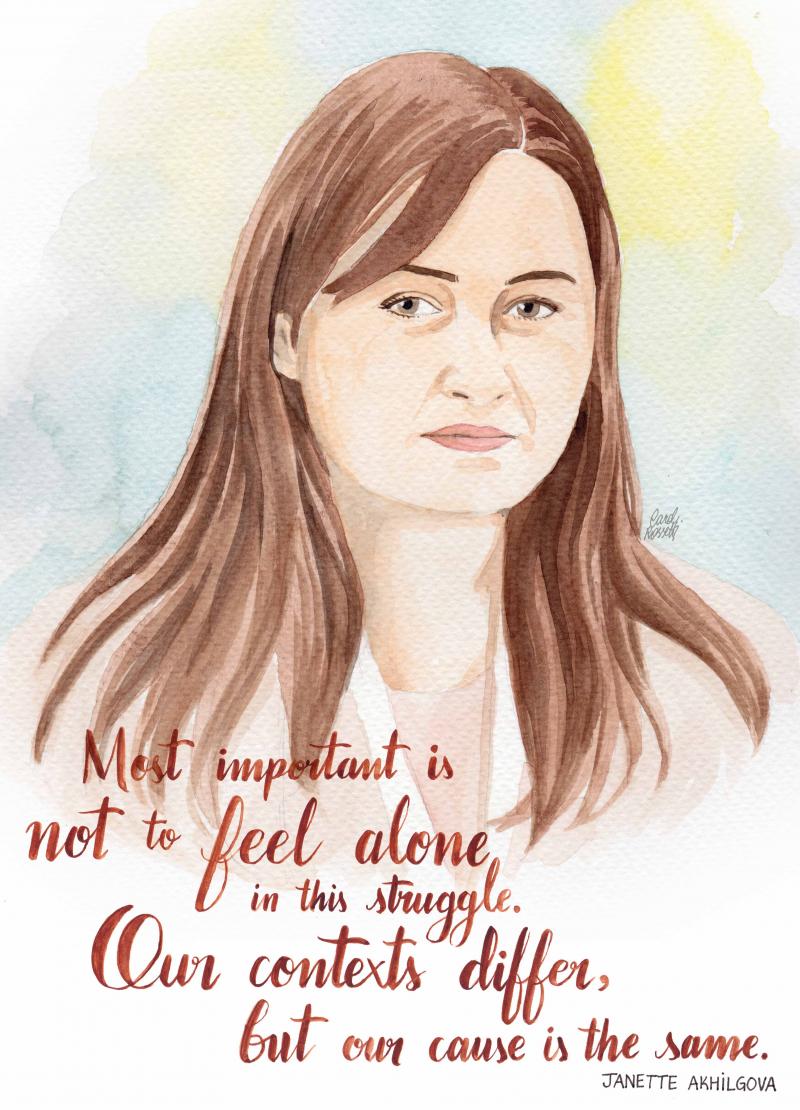
11. Janette Akhilgova
Janette Akhilgova works with Peacebuilding UK in the North Caucasus region of Russia as well as being the Chief of the Board of RC-DEV a local non-profit in Ingushetia. Russia is a multi-confessional society and faces various forms of fundamentalism. In Muslim-majority North Caucasus, the government and civil society have made some attempts to address rising fundamentalisms, however Janette notices that these always neglect the gender dimension of the problem. Janette is working for stronger platforms for discussion and awareness-raising about fundamentalisms and their impact on women. She hopes for more solidarity with those opposing fundamentalism in Russia, from others in her region, and from allies in other countries.
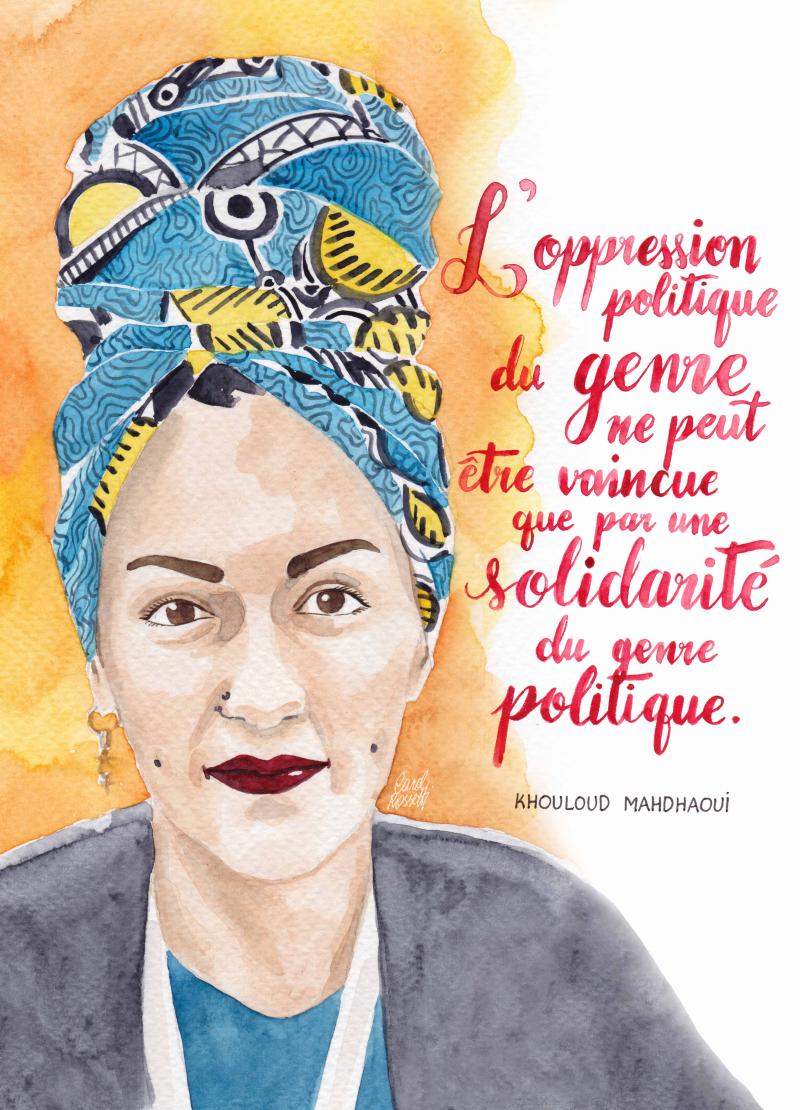
12. Khouloud Mahdhaoui
Khouloud Mahdhaoui is President of Chouf, a feminist organization in Tunisia who in 2014 began a project call Choufthouhonna, an International Feminist Art Festival in Tunis. Choufthouhonna was a response to a lack of public space available for women’s expression, a problem linked to the predominance of fundamentalist discourses in post-revolutionary Tunisia. Khouloud describes the art festival as challenging fundamentalist rule by “opening the streets to women’s voices and bodies”. The quote in Khouloud’s picture captures the idea that oppression based on gender can only be overcome through a politics of solidarity between those people who themselves experience this oppression. Khouloud sees the inclusive and diverse feminism embodied by Chouftouhonna as emblematic of her vision of a feminist future: “a world in which people can be different but remain equal, and joined together in love.”
The exhibit “Feminist Futures Without Fundamentalisms” will be displayed at the 2016 AWID Forum in Costa do Sauípe, Bahia, Brazil 8-11th September. AWID extends thanks to Akanksha Mehta for her photography which was used as the basis for some of these portraits.
Who is your champion working to challenge religious fundamentalisms? Is there a person or group you know that do great work in this area? Comment below or share via Twitter, Instagram, or Facebook. Remember to tag us @AWID and use the hashtag #FeministFutures - you can even share on a Friday and make your contribution part of #FeministCrushFriday !
